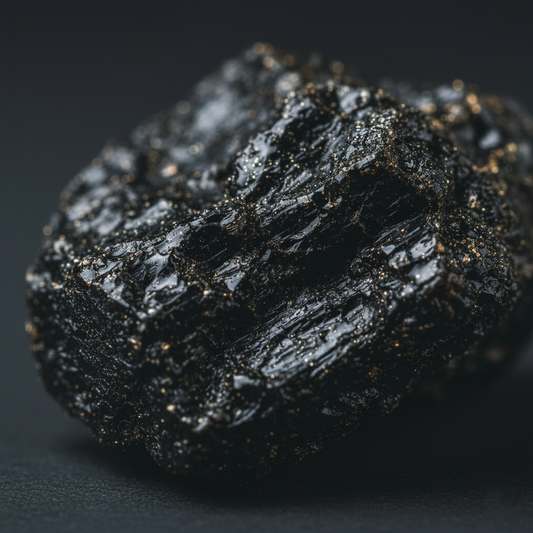Key Takeaways
| Question | Answer |
|---|---|
| What is Black Seed Oil? | Black seed oil is extracted from the seeds of Nigella sativa, a plant known for its potent medicinal properties. |
| What are the main benefits? | Black seed oil supports immune health, reduces inflammation, promotes heart health, improves skin and hair, aids weight loss, and helps manage chronic conditions like diabetes. |
| How should it be used? | It can be taken orally (capsules, liquid) or applied topically (skin, hair). Recommended dosages vary based on the health goal. |
| Are there any side effects? | Potential side effects include upset stomach, skin rashes, and interactions with certain medications. Consult a doctor before use. |
| Who should avoid it? | Pregnant or breastfeeding women, children, and those with specific health conditions should avoid black seed oil unless advised by a healthcare professional. |
Black seed oil, derived from the Nigella sativa plant, has been celebrated for centuries as a powerful natural remedy. Often referred to as "the remedy for everything but death," this ancient elixir has recently gained mainstream attention for its versatile health benefits. From supporting heart health to promoting glowing skin, black seed oil is now backed by modern science and embraced by wellness enthusiasts worldwide. In this article, we’ll explore the compelling benefits of black seed oil, practical ways to use it, and expert advice to help you harness its potential.
What is Black Seed Oil?

Black seed oil comes from the seeds of Nigella sativa, a flowering plant native to Southwest Asia, the Middle East, and parts of Africa. These tiny black seeds go by many names, including black cumin, black caraway, and fennel flower. For thousands of years, black seed oil has been a staple in traditional medicine, revered for its therapeutic properties. Its rich history spans across cultures, from ancient Egyptian tombs to references in Islamic teachings. But what makes black seed oil truly remarkable is its blend of potent compounds, particularly thymoquinone, which offers powerful antioxidant and anti-inflammatory effects.
Health Benefits of Black Seed Oil

Boosts Immune System and Fights Inflammation
Black seed oil is known for its high concentration of antioxidants, especially thymoquinone, which protects cells from damage caused by free radicals. These antioxidants are crucial in reducing chronic inflammation, which is linked to many health conditions. The anti-inflammatory effects of black seed oil make it effective in managing conditions like arthritis and asthma by calming inflamed tissues.
Key Benefits:
- Rich in antioxidants like thymoquinone.
- Reduces chronic inflammation, supporting overall immune health.
- Helps manage symptoms of arthritis and asthma.
Supports Cardiovascular Health
Research has shown that black seed oil can help lower levels of LDL ("bad") cholesterol while boosting HDL ("good") cholesterol. Additionally, its blood pressure-lowering properties contribute to improved heart health, reducing the risk of heart disease.
Key Benefits:
- Lowers LDL ("bad") cholesterol.
- Increases HDL ("good") cholesterol.
- Regulates blood pressure to reduce heart disease risk.
Enhances Skin and Hair Health
For those struggling with skin conditions like acne, eczema, or psoriasis, black seed oil can be a natural remedy. Its anti-inflammatory and antimicrobial properties soothe the skin, reduce redness, and promote healing. When applied to hair, black seed oil helps strengthen strands, reduce dandruff, and even promote thicker growth.
Key Benefits:
- Soothes skin irritation from conditions like acne and eczema.
- Reduces scarring and promotes a healthy complexion.
- Strengthens hair, reduces dandruff, and supports growth.
Aids in Digestion and Weight Management
Digestive health is essential for overall wellness, and black seed oil can help by improving digestion and reducing bloating. It also supports weight management by promoting a balanced metabolism and reducing body fat. Studies suggest that consistent use can help decrease body mass index (BMI) and waist circumference, especially when combined with a healthy diet and exercise.
Key Benefits:
- Improves digestion and reduces bloating.
- Promotes weight loss by lowering BMI and waist circumference.
- Supports better nutrient absorption.
Helps Manage Chronic Conditions
Black seed oil has been studied for its potential benefits in managing chronic conditions like diabetes. It helps regulate blood sugar levels and reduce HbA1c, a marker for long-term blood sugar control. This makes it a useful supplement for people managing type 2 diabetes. Additionally, black seed oil’s ability to reduce inflammation and support metabolic health provides a holistic approach to managing chronic diseases.
Key Benefits:
- Regulates blood sugar levels and reduces HbA1c.
- Supports metabolic health and reduces inflammation.
- Complements conventional treatments for chronic conditions.
Practical Uses and Dosage Recommendations

Daily Usage Tips
Black seed oil can be incorporated into your daily routine in various ways. If you prefer taking it orally, you can opt for capsules or liquid form. The oil’s distinct, slightly bitter flavor pairs well with honey, lemon juice, or smoothies. For topical use, it can be mixed with a carrier oil like coconut oil and applied directly to the skin or hair. Whether ingested or applied, start with small doses to assess your body’s response.
Dosage Guidelines
Dosages vary depending on the intended health goal. For general immune support, taking 1-2 teaspoons of black seed oil daily is common. For managing chronic conditions like diabetes, studies have used doses of up to 2-3 grams per day. Always consult with a healthcare professional for personalized dosage recommendations, especially if you’re using black seed oil as a complementary treatment.
Potential Side Effects and Safety Considerations
While black seed oil is generally safe when used in moderation, it’s important to be aware of potential side effects. These may include digestive issues like nausea or bloating, especially if taken in large amounts. Additionally, black seed oil can interact with certain medications, particularly those processed through the cytochrome P450 pathway, such as blood thinners and beta-blockers. Pregnant or breastfeeding women should avoid using black seed oil, except in small culinary amounts. As with any supplement, it’s wise to consult your healthcare provider before starting regular use.
Common Questions and Misconceptions
How should black seed oil be stored?
To maintain its potency, black seed oil should be stored in a cool, dark place away from direct sunlight. Once opened, it’s recommended to keep the bottle tightly sealed and refrigerated if possible to extend its shelf life and preserve its beneficial compounds.
How long does it take to see results?
The timeline for seeing results varies depending on the intended use. For skin and hair benefits, noticeable improvements may occur within a few weeks. For chronic conditions, consistent use over several months, paired with a healthy lifestyle, is typically recommended.
Summary
Black seed oil is a versatile supplement with a long-standing history in natural medicine. From boosting immune health to enhancing skin and hair, its benefits are wide-ranging and backed by both tradition and science. If you’re considering adding black seed oil to your routine, start with small doses, consult a healthcare provider, and enjoy the diverse ways this oil can enhance your health.
Looking to try black seed oil for yourself? Explore our Ethiopian Black Seed Oil that is pure, organic, and cold-pressed to ensure maximum potency and benefits.




